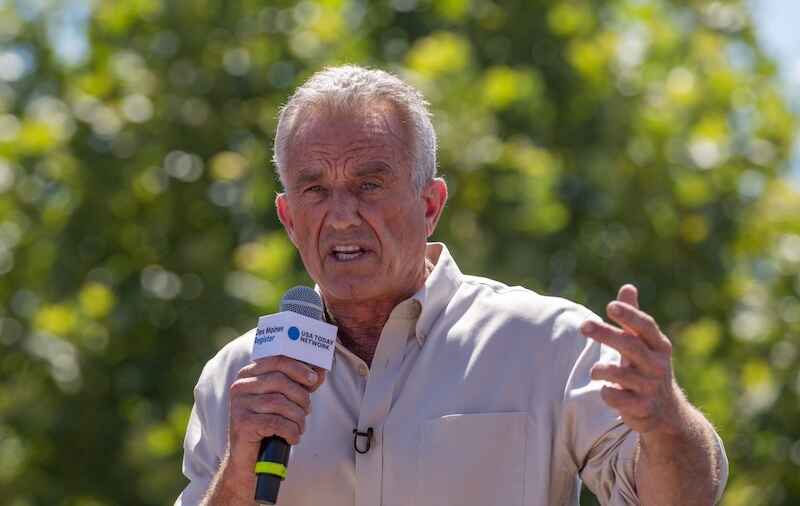The Price We Pay for Simple Solutions
Joel Salatin|December 4, 2024

With the election behind us and many innovative policy issues being debated, I’m struck like never before with the truth that everything relates to everything…
And the government tends to attack things in isolation.
Lobbyists woo politicians and bureaucrats with their pet issues but seldom look at the broader ramifications. The domino effect cascades policy into areas hardly imaginable.
For example, the last few days our farm’s phone and social media has blown up with people freaking out about President Trump’s notion of sending millions of illegal immigrants packing.
The fear? “Who will pick the tomatoes? Who will butcher the chickens?”
These fears drive them quickly to the reason for calling us… “Do we need to stock up on your meat right now to be ready when there’s no food?”
I confess, that thought never entered my mind. First, our farm employs no illegals (unlike many farms) and second, as far as I know, no outfit in our supply chain employs them either. We buy GMO-free grains from local farmers, primarily Amish and Mennonite, who are fairly insular in their workforce. And finally, the local businesses we patronize hire local folks from the community.
But the outfit that just sent tainted onions to McDonald’s employs 20,000 people picking veggies. I wonder how many of those pickers are legal? The big processing plants… well, enough said.
The cascading effect of a single policy makes cherry-picking issues a complicated process. When Trump Derangement Syndrome is added to the mix, the paranoia becomes downright toxic.
Gas on the Fire
The interwoven policies we have were built over time by adopting things that also had unforeseen consequences.
For example, when the Federal Department of Education launched, it was supposed to help state and local governments with expertise and money.
Instead… it homogenizes curricula, makes it well-nigh impossible to fire bad teachers, and graduates students who know more about transgenderism than the Transcontinental Railroad.
RFK Jr. has vowed to stop paying $9 billion a year to high fructose corn syrup carbonated soft drink companies via the Supplemental Nutrition Assistance Program (SNAP, formerly Food Stamps). A tenth of the SNAP budget goes to sugary soft drinks, which not only lack nutrition (it’s the N in SNAP), but fill kids with behavior-altering sugar and induce diabetes.
But will Coca-Cola go quietly into the night?
When President Franklin D. Roosevelt wouldn’t let businesses change wages, they added health insurance as a way to circumvent the mandate. That gradually cascaded into the insurance morass and astronomically increasing healthcare costs we see today.
The solution? National government healthcare, of course. Throw more gas on the fire.
The philosophical result of that is the notion that my health is your economic responsibility.
That leads to the idea that society must control individual living and eating decisions because risky behavior is an economic liability on society.
We can’t allow people to use raw milk because such ingestion may cause injury to be treated at the public trough.
We can’t let people say injurious things because psychological bills to treat distraught people must be paid from the public treasury.
Something Positive
The point is that if Trump’s election means dismantling the dysfunctional house that our policies built one single-issue wall or board at a time, the demolition will have similar far-reaching consequences.
And when pet concessions or government plums get axed, loud will be the wailing and long will be the gnashing of teeth.
My answer to our distraught customers fearing food shortages when the immigrants get deported is simple: “Don’t worry, when Elon and Vivek get done eliminating half a million federal bureaucrats, they can go pick tomatoes and gut chickens… something meaningful for a change.”
Trump’s team needs to look at the outcomes the dismantling and offer positive consolation.
How to get Americans to love liberty again is the defining imperative of this new administration. Every attack on sacred cows needs to be expressed as a great-tasting burger. Just as we’ve seen prices and regulations escalate, most people have forgotten what living under real markets and low government interventions enables.
We need to make freedom and liberty as attractive as bread and circuses. That’s a tall order, but with half the nation on the dole and the other half being productive, cutting programs and spending is a recipe for ear-shattering whining.
The mainstream media will always take the side of those unhappy about being weaned from the government teat. A compelling and attractive vision and opportunity on the other side of that whining is the only way the current bureaucratic labyrinth can be decreased.
For example, offer food choice by denying government inspectors the right to intervene in every neighborly food transaction.
We have freedom of choice in the bedroom, bathroom, and womb… how about offering freedom of choice in the kitchen?
Uber freed us from the stranglehold of licensed chauffeurs. It’s time to Uberize our food system by letting folks opt out of Walmart and patronize their neighbors.
People can grasp that kind of language and that kind of vision.
For too long, libertarians and conservatives have allowed our message to be seen as an attack, as primarily negative. If we’re going to win, we must invert it by speaking a positive option unable to develop due to a meddlesome bureaucracy.
Honey attracts more flies than vinegar.
Rather than complaining frustration, we need compelling flourishing.

Joel Salatin
Joel Salatin calls himself a Christian libertarian environmentalist capitalist lunatic farmer. Others who like him call him the most famous farmer in the world, the high priest of the pasture, and the most eclectic thinker from Virginia since Thomas Jefferson. Those who don’t like him call him a bioterrorist, Typhoid Mary, a charlatan, and a starvation advocate. With a room full of debate trophies from high school and college days, 12 published books, and a thriving multigenerational family farm, he draws on a lifetime of food, farming and fantasy to entertain and inspire audiences around the world.



